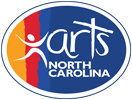Arts Education is Essential, Not Extra
 For too long we have treated the arts in our schools as an “extra.” So often they are described as the “nice” subject that breaks up the day so that young minds can rest from their more important pursuits in literacy, science, and math. When we frame arts education as “nice” instead of as an integral and necessary component of a child’s education, we are not only doing a great disservice to our students, but we are neglecting the well-being of our own society.
For too long we have treated the arts in our schools as an “extra.” So often they are described as the “nice” subject that breaks up the day so that young minds can rest from their more important pursuits in literacy, science, and math. When we frame arts education as “nice” instead of as an integral and necessary component of a child’s education, we are not only doing a great disservice to our students, but we are neglecting the well-being of our own society.
In education it makes sense to allocate time for subjects so that students can focus and gain a deeper understanding. One learns about photosynthesis in an allotted time separate from when one learns how to best draw a tree. However, we can do damage when we rank their importance and label each subject as essential or extra. I am not saying that we should abandon literacy and arithmetic to focus more on creative arts, but rather that we harm our children when we neglect any one subject to put more resources toward another. Education should provide us the tools we need to thrive in our vocations, in our society, and in our lives. You need instruction in all subject areas, including the arts, in order to effectively achieve these goals.
 This is not a new idea, but is one premise on which our nation was founded. George Washington said, “the Arts and Sciences, essential to the prosperity of the State and to the ornament of human life, have a primary claim to the encouragement of every lover of his country and mankind.” And Thomas Jefferson knew that providing a complete education to all our citizens is essential to our success. “Let us in education dream of an aristocracy of achievement arising out of a democracy of opportunity.” Our founding fathers knew that the greatness of our nation was dependent on providing a complete education to all our citizens, rich and poor, urban and rural, so that we all would have equal opportunity for life, liberty, and the pursuit of happiness. In this way we can all access the American Dream, and the individual excellence of us all will advance our nation as whole.
This is not a new idea, but is one premise on which our nation was founded. George Washington said, “the Arts and Sciences, essential to the prosperity of the State and to the ornament of human life, have a primary claim to the encouragement of every lover of his country and mankind.” And Thomas Jefferson knew that providing a complete education to all our citizens is essential to our success. “Let us in education dream of an aristocracy of achievement arising out of a democracy of opportunity.” Our founding fathers knew that the greatness of our nation was dependent on providing a complete education to all our citizens, rich and poor, urban and rural, so that we all would have equal opportunity for life, liberty, and the pursuit of happiness. In this way we can all access the American Dream, and the individual excellence of us all will advance our nation as whole.
If the arts are not part of a complete education, then why are students actively involved in the arts four times more likely to be recognized for academic achievement? All students deserve a comprehensive arts education and it is the students facing the most barriers that have the greatest need for this instruction. The 25% of students who are most socio-economically challenged are five times more likely to graduate from high school and twice as likely to graduate from college if they are significantly active in the arts compared to their peers with little or no arts participation.
 Yet when school budgets are written, we prioritize our investments and feel that the “extras” can be set aside. As a result, our poorest communities, whether urban or rural, often reduce the arts in their schools and rob their children of the very opportunities they are trying to provide. This is not simply an issue of access to the arts, it is an issue of social justice. By neglecting arts education in the name of economic austerity, we are actively working to oppress our own citizens, especially our children, and we undermine the success of our communities, our state, and our nation.
Yet when school budgets are written, we prioritize our investments and feel that the “extras” can be set aside. As a result, our poorest communities, whether urban or rural, often reduce the arts in their schools and rob their children of the very opportunities they are trying to provide. This is not simply an issue of access to the arts, it is an issue of social justice. By neglecting arts education in the name of economic austerity, we are actively working to oppress our own citizens, especially our children, and we undermine the success of our communities, our state, and our nation.
September 8-14 is National Arts in Education Week and it is a time for us to recognize the value the arts have in nurturing young minds and creating the prosperous and engaged citizens of tomorrow. We must tell our leaders that that the arts are vital to the education of our youth and that they are not an “extra privilege,” but an “essential freedom” that must be defended and promoted for the good of us all.

